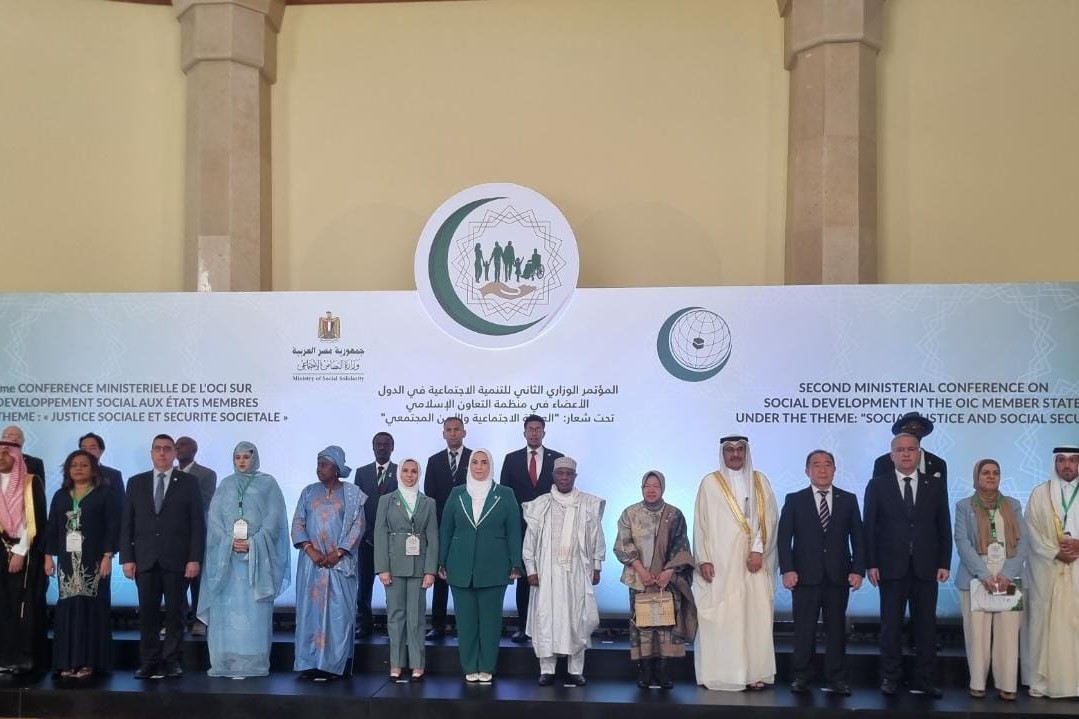At the OIC Ministerial Meeting, the Minister of Social Affairs Outline Strategies for Addressing Social Issues

Cairo (June 8,
2023) – The
Indonesian government has taken a concrete initiative to improve social
welfare. By way of the Ministry of Social Affairs (MoSA), the government
develops social protection systems and policies to enhance social protection,
social assurance, empowerment, and social rehabilitation for those in need of
social welfare services.
The statement above is an
important part of the speech by Minister of Social Affairs Tri Rismaharini at
the High-Level Ministerial Meeting of the Organization of Islamic Cooperation
(OIC) in Cairo, Egypt, on Monday (6/6). At the meeting attended by 40
delegates, Minister Risma explained the policy and program for addressing
various social problems.
According to Minister Risma, to
improve poverty management, the government has updated Integrated Social
Welfare Data (DTKS) and retrieved beneficiary profile information. "At
least 100 million beneficiaries have been registered on DTKS to date, including
1.04 million disabled individuals. "DTKS is cited as a reference to the
implementation of the Free Health Insurance Program (PBI-JKN) and has rescued
over 8,000 people from pasung (seclusion and restraint of people with mental
illness)," she said at a conference titled "Social Justice and Social
Security”.
DTKS is also utilized in the
family hope program (Program Keluarga Harapan) and basic food assistance for
impoverished families. "By 2022, we will have reached nearly 10 million
families through the family hope program and 18.8 million through basic food
assistance," she said.
During the pandemic, MoSA is
collaborating with local administrations to implement a social protection
program. In addition to PT Pos Indonesia's role as a distributor,
pandemic-affected communities also received social assistance, such as direct
financial assistance for the transfer of fuel subsidies and the increase in the
price of cooking oil.
The MoSA introduces PENA
(National Economic Hero Program) to increase the economic capacity of
low-income communities. This program provides capital for businesses and
increases entrepreneurial capacity. "Last year, this program improved the
well-being of 10,000 families across the country," she continued. PENA
assists five clusters of small businesses: culinary, handicraft, goods and
services, agriculture, and farming.
The government has constructed
two low-cost five-floor apartments and will expand them to at least 14
apartments in eight locations throughout Indonesia to increase the income of
disadvantaged populations. "The first floor is prioritized for the elderly
and the incapacitated. The monthly rent begins at Rp 10,000, or $0.7 USD per
month," she explained.
The protection and fulfillment of the rights of people with disabilities also become essential concerns. MoSA authorized the gallery of the ATENSI Creation Center (Sentra Kreasi ATENSI/SKA) to increase economic independence. Some of SKA's successes include Café More in Bandung, ARTNE Coffee in Tabanan Bali, Batik Ciprat (Splashed Batik), and many others.
MoSA has taken effective steps to
improve accessibility for people with disabilities by distributing adaptive
smart guide sticks with innovative features such as a hot sensor, flood or
water flow detector, dangerous chemical material detector, and GPS.
Nationwide, the government
performs cataract surgery on a large scale, including on children. "At a
single event, at least 300 children will be examined and treated, and if they
are diagnosed with cataracts, they will undergo surgery immediately,"
stated Minister Risma. "The country wishes to increase public awareness of
the rights of people with disabilities through a systemic campaign. We launch program
Indonesia hears, Indonesia sees, and Indonesia walks,” she continued.
As a nation situated within the
megathrust and ring of fire, the Indonesian government works to increase the
disaster resilience of people with disabilities. "In disaster-prone areas,
we construct large evacuation centers to support and ensure that all groups
receive protection," the minister said.
"As help gets closer,
people's resilience grows. The social granaries are stocked with rice,
ready-to-eat food, a first aid kit, a mattress, a tent, a blanket, adult
clothing, diapers, a generator, and a catapult boat," she said
MoSA also deploys 39,000 Disaster
Voluntary Workers (TAGANA), which include Difagana (Difable Tagana) and other
social companions who have been trained to respond rapidly. "We also have
disaster alert villages spread across 936 locations in 34 provinces," she
explained.
 English
English
 Bahasa
Bahasa
